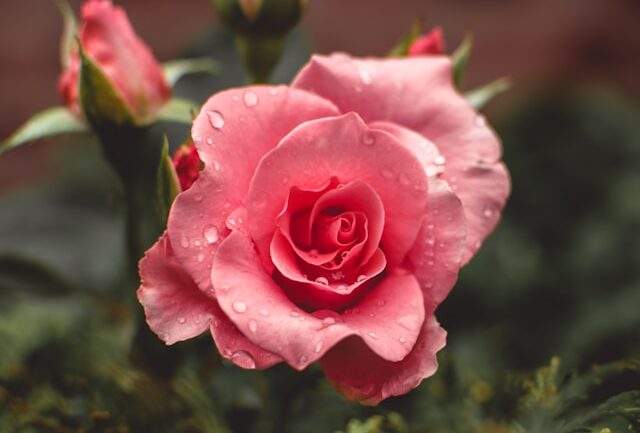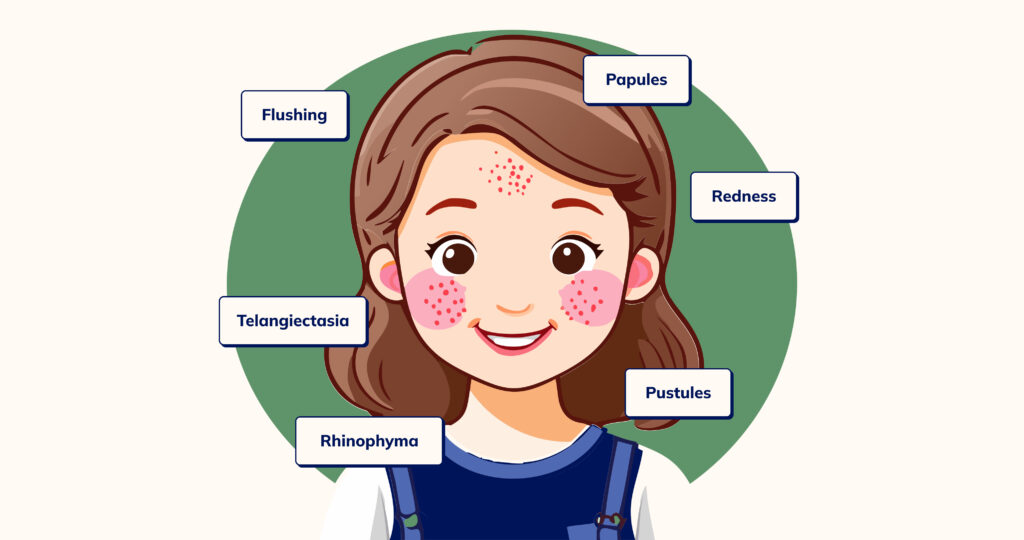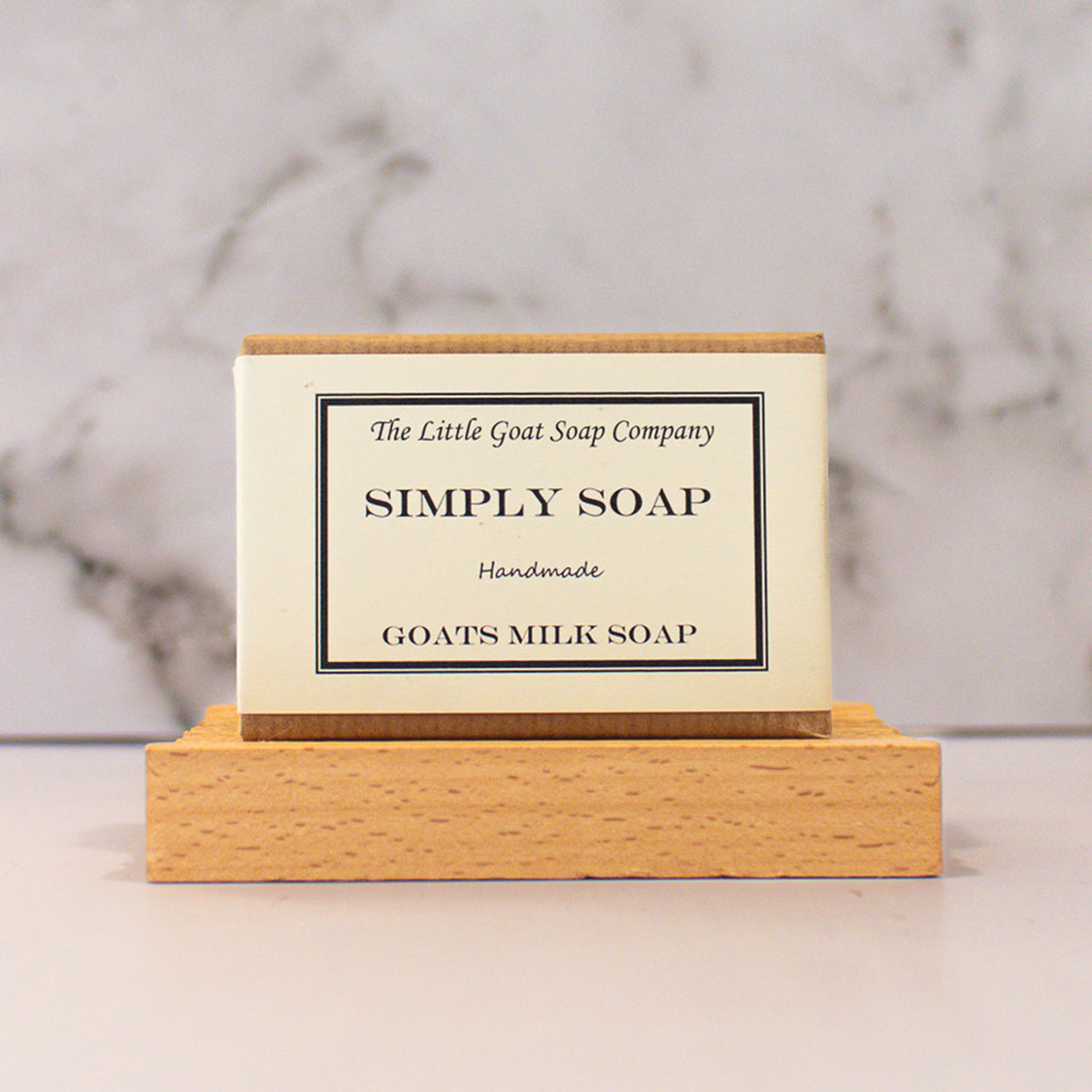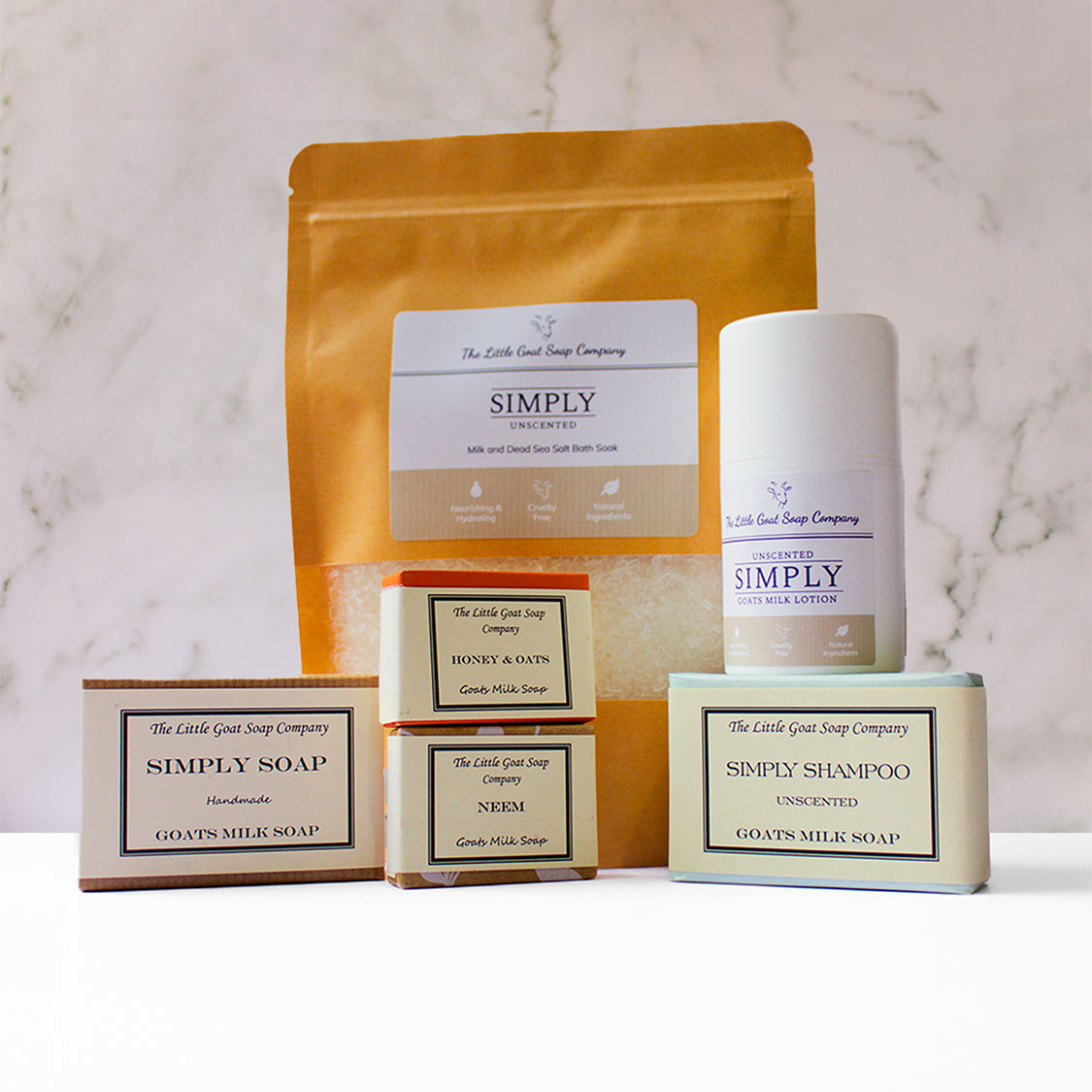


Rosacea is a common skin condition that primarily affects the face. It often begins with a tendency to blush or flush more easily than other people. Over time, the redness can become more persistent, and visible blood vessels may appear. Some people with rosacea also develop bumps and pimples on their face.
Symptoms can vary but typically include facial redness, swollen red bumps, visible blood vessels, and a burning or stinging sensation. Triggers can include sun exposure, stress, hot weather, spicy foods, alcohol, and certain skincare products.
A proper skincare routine is essential for managing rosacea. Using gentle, non-irritating products can help reduce redness and prevent flare-ups. This is where choosing the right soap comes into play.
Identifying Rosacea can be quite a challenge when their is a variety of skin conditions such as eczema and psoriasis that present themselves in similar ways.
It's important to note that rosacea symptoms can vary from person to person and may come and go in flare-ups. If you suspect you have rosacea, it's best to consult a dermatologist for a proper diagnosis and treatment plan.

When selecting a soap for rosacea, it's important to look for ingredients that are gentle and soothing. Here are some key components to consider:
Opt for soaps that contain mild cleansing agents that won't strip your skin of its natural oils. Look for ingredients that include natural oils.
Ingredients with anti-inflammatory properties such as olive oil can help reduce redness and swelling.
Keeping your skin hydrated is crucial. Look for soaps that contain moisturising ingredients like coconut oil, shea butter, and we'd be remiss to not include our not so secret ingredient, goat milk.
Certain ingredients can exacerbate rosacea symptoms and should be avoided:
Avoid soaps with harsh chemicals like sulfates and parabens, which can irritate sensitive skin.
Fragrances and dyes can cause allergic reactions and irritation. Opt for fragrance-free and dye-free soaps. If you must have your soap scented, then opt for soaps that use essential oils in place of synthetic scents.
Alcohol can be very drying and irritating to rosacea-prone skin. Avoid soaps that contain alcohol.
Goat milk soap offers numerous benefits for individuals suffering from rosacea, making it an excellent choice for gentle skincare. Its natural composition is rich in vitamins, fatty acids, and proteins that nourish and hydrate the skin, helping to alleviate dryness and irritation often associated with rosacea.
The anti-inflammatory properties of goat milk can soothe redness and inflammation, promoting a calmer complexion. Additionally, the presence of alpha-hydroxy acids in goat milk aids in gentle exfoliation, helping to remove dead skin cells without causing irritation, thus improving overall skin texture.
Many users have reported significant improvements in their rosacea symptoms, including reduced redness and enhanced skin health, after incorporating goat milk soap into their daily routine.

Using rosacea soap correctly can make a significant difference in managing your symptoms. Here's a step-by-step guide:
Additional Skincare Tips:
At The Little Goat Soap Company we have a range of products that can be used to reduce the effects of rosacea. We have a range of soaps, shampoos, lotions, and bath soaks which all use natural ingredients such as goats milk, coconut oil, shea butter, olive oil and sunflower oil which have all been shown to have a positive impact on reducing the severity of rosacea symptoms.

Yes, the rosacea friendly soaps from The Little Goat Soap Company can be used on your face. We also have rosacea friendly creams and bath soaks that can be used to alleviate symptoms.
Unfortunately, there is no cure for rosacea, but various treatments such as using products that are skin friendly can help manage and control the symptoms. Medications can also be used and changes to lifestyle can also reduce the effects.
Rosacea symptoms can flare up when exposed to or experiencing; Sun exposure, Stress, Hot weather, Spicy foods, Alcohol, Hot drinks, Certain skincare products that use harsh chemicals, fragrances and dyes.
Dietary triggers can vary from person to person. While dairy is more commonly associated with acne, individuals with rosacea should monitor their intake of spicy foods and alcohol, as these can worsen their condition
Rosacea primarily affects adults, typically beginning after the age of 30. While it can occur in younger individuals, it is most commonly seen in middle-aged and older adults. Both men and women can develop rosacea, but it is more frequently diagnosed in women.
Rosacea primarily affects the face, particularly the cheeks, nose, forehead, and chin, where it manifests as redness, visible blood vessels, and sometimes bumps. Additionally, ocular rosacea can impact the eyes and eyelids, causing symptoms like redness and irritation. While the condition is predominantly facial, it can occasionally affect the neck, chest, and scalp, though these areas are much less commonly involved. Overall, rosacea is primarily a skin condition of the face, with potential eye involvement being a significant concern for many individuals.
Using makeup to conceal rosacea can be effective, but it's essential to choose the right products and techniques. Opt for gentle, non-irritating makeup specifically formulated for sensitive skin, avoiding ingredients like alcohol and fragrances. A color-correcting green primer can help neutralise redness, followed by a non-comedogenic foundation and concealer to even out skin tone. Apply makeup in thin layers using gentle methods, and ensure thorough removal at the end of the day with rosacea-friendly cleansers.